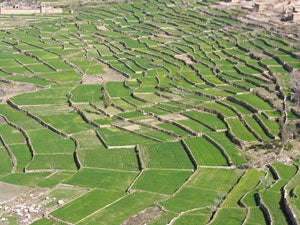 Last week I was a speaker at a Global Water Intelligence summit in Rome. The organizers asked the panelists to imagine a perfect water future in 25 years and then re-engineer what is necessary to get there. I came up with a long list for an ideal water future, and gradually whittled it down to my personal four:
Last week I was a speaker at a Global Water Intelligence summit in Rome. The organizers asked the panelists to imagine a perfect water future in 25 years and then re-engineer what is necessary to get there. I came up with a long list for an ideal water future, and gradually whittled it down to my personal four:
1) Nobody's health, livelihood, physical security or ecosystems are held back by poor management of water, which means, among other things, that everyone has sustainable access to safe water and basic sanitation services;
2) Everyone knows how much water exists in each basin, where and how efficiently it used, using standard definitions (this article details the indications of the impacts of not being specific);
3) Governments set limits for water consumption from all users, including environmental services in each basin and enforce those limits. Within those limits, users use their allocation efficiently;
4) Poor people, environmental advocates, industry, agriculture and cities all have equal voice in the bargaining process.
Other speakers stressed sustainable water and sanitation for all as well as water services being properly linked to the water cycle with solid emphasis on water quality. What is your perfect water future?


Join the Conversation